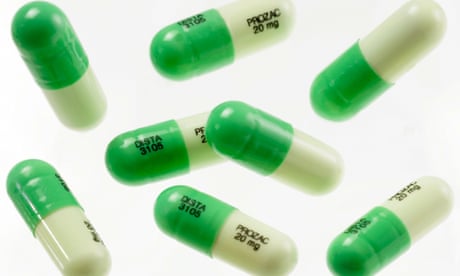Scientists claim to have found the first direct evidence that people with depression have a reduced capacity for releasing serotonin in the brain. The findings from a brain-imaging study reignite a debate within psychiatry over the so-called serotonin hypothesis of depression and challenge the conclusions of an influential review published in July that found “no clear evidence” that low serotonin levels are responsible. The latest work, led by scientists at Imperial College London, suggested that people with depression have a decreased serotonin response.
“This is the first direct evidence that the release of serotonin is blunted in the brains of people with depression,” said Prof Oliver Howes, a consultant psychiatrist based at Imperial College and King’s College London, and a co-author. “People have been debating this question for 60 years, but it’s all been based on indirect measures. So this is a really important step.
” The serotonin hypothesis arose from evidence from postmortem brains and blood samples that suggested a serotonin deficit could be involved in depression. The theory provides a plausible biological mechanism for how the main class of antidepressant drugs, selective serotonin reuptake inhibitors (SSRIs), are effective, and is why the brain chemical is sometimes referred to as a “happy hormone”. However, there is not yet conclusive evidence that serotonin abnormalities are the underlying cause of depression and resolving this question is seen as crucial to providing better treatments.
The latest paper adds weight to the view that serotonin plays a role and demonstrates a new brain imaging technique that could pave the way to a better understanding of why SSRI drugs fail to help an estimated 10% to 30% of patients. “It’s the closest anyone has been able to get so far,” said Howes. “It’s hard to measure these transmitters in the brains of living people.
We can’t put a pipette in there and take a sample. This is the closest we’re likely to come. ” The study, published in the journal Biological Psychiatry , involved seventeen patients with major depressive disorder or depression linked to Parkinson’s disease and 20 healthy volunteers.
The participants were given a PET scan that uses a radioactive tracer to reveal how much serotonin was binding to certain receptors in the brain. They were then given a dose of amphetamine, which stimulates serotonin release, and scanned again. A reduced serotonin response was seen in the depressed patients, the researchers found.
Prof Catherine Harmer, of the University of Oxford, who was not involved in the work, described it as an important finding. “It’s really noteworthy that they found evidence for lower serotonin release,” she said. Harmer said that few in the field would now argue that all depression was a result of low serotonin, but that the findings were “very much in line with the idea that serotonin may play an important role”.
Sign up to First Edition Free daily newsletter Archie Bland and Nimo Omer take you through the top stories and what they mean, free every weekday morning Privacy Notice: Newsletters may contain info about charities, online ads, and content funded by outside parties. For more information see our Privacy Policy . We use Google reCaptcha to protect our website and the Google Privacy Policy and Terms of Service apply.
Little evidence that chemical imbalance causes depression, UCL scientists find Read more Others were more sceptical. Eiko Fried, a clinical psychologist at the University of Leiden, questioned whether the results were statistically robust. “The conclusions the authors draw is not proportional to the evidence presented,” he said.
“The statistical analyses are inconsistent and do not … establish ‘clear evidence’ for the serotonin theory of depression. ” Joanna Moncrieff, professor of psychiatry at University College London who led the review that concluded there is no evidence that chemical imbalances in the brain cause depression , said the latest paper would not cause her to revise this view. She pointed to the size of the study and the fact that it still measured a proxy for serotonin as shortcomings.
“This study does not provide convincing evidence that a serotonin abnormality is the cause or mechanism underlying depression, or one of the causes or mechanisms,” she said. Howes said the findings would need to be replicated and then further studies would be needed to determine whether any serotonin differences cause depression or arise from the condition. “It’s important because whilst current treatments do help a lot of people they don’t work for everyone,” he said.
“For large numbers of people the first treatment doesn’t work and some people can’t find any treatment that helps. ”.
From: theguardian
URL: https://www.theguardian.com/society/2022/nov/05/study-finds-first-evidence-of-link-between-low-serotonin-levels-and-depression



